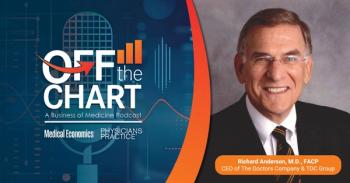
The Paradox of ACO Waivers of Medical Fraud and Abuse Laws
The polar opposite of marijuana laws, waivers for accountable care acts are allowed at the federal level, but can run into problems in individual states.
The Medicare Shared Savings program, Section 1899 of the Social Security Act, is designed to achieve three goals: Better health for populations, better care for individuals, and lower growth in expenditures.
Effective November 11, 2011, the agencies responsible for administering the law issued an Interim Final Rule containing five waivers related to accountable care organizations (ACOs), which at first blush, would appear to protect all activities related to the formation and operation of an ACO under the Shared Savings Program.
Each waiver contains a very detailed list of things which must be true for the waiver to apply:
1. An "ACO pre-participation"waiver of the Physician Self-Referral Law, the federal Anti-Kickback Statute, and the Gainsharing CMP that applies to ACO-related start-up arrangements in anticipation of participating in the Shared Savings Program;
2. An "ACO participation" waiver of the Physician Self-Referral Law, federal Anti-Kickback Statute, and the Gainsharing CMP that applies broadly toACO-related arrangements during the term of the ACO's participation agreement under the Shared Savings Program and for a specified time thereafter;
3. A "shared savings distributions" waiver of the Physician Self-Referral Law, federal Anti-Kickback Statute, and Gainsharing CMP that applies to distributions and uses of shared savings payments earned under the Shared Savings Program;
4. A "compliance with the Physician Self-Referral Law" waiver of the Gainsharing CMP and the federal Anti-Kickback Statute for ACO arrangements that implicate the Physician Self-Referral Law and meet an existing exception; and
5. A "patient incentive" waiver of the Beneficiary Inducements CMP and the federal Anti-Kickback Statute for medically related incentives offered by ACOs under the Shared Savings Program to beneficiaries to encourage preventive care and compliance with treatment regimes.
These waivers add a second type of protection where fraud and abuse laws would otherwise be implicated: 1.) the arrangement could always fit within an existing safe harbor of the Anti-Kickback Statute or Stark Law; and 2.) failing that, a waiver could apply. The text of the rule makes clear, “The waiver authority under section 1899(f) is limited to sections 1128A and 1128B and title XVIII of the Act, and does not extend to any other laws or regulations, including, without limitation, the Internal Revenue Code (IRC) or State laws and regulations.” 76 FR 67994.
Wait, wait, wait …these waivers actually have no effect on state laws, such as the
That means the waivers are virtually worthless as a defense to an ethics complaint that a hospital, for example, is paying a doctor not to treat his patient (that’s why there is a “Gainsharing CMP provision" in the first place,) nor to a state anti-kickback allegation that an ACO is providing free blood pressure cuffs to reduce the chance of hospitalization. The waivers also have no effect on state laws which prohibit the corporate practice of medicine, or fee-splitting between say, an IT company who invests in the ACO and a group of physicians who control it. Worse, in states which have anti-kickback statutes similar to the federal rule, ACO shared savings arrangements remain a crime in many states.
To be sure, the idea is “the sword of the parent is rarely stained with the blood of its child.” The CMS and Office of the Inspector General aren’t going to punish those ACOs who are making bona fide attempts to follow the law. But the feds have no control over state and federal False Claims Act Whistleblowers (the government can decline to participate, but that’s it), state attorneys general enforcing state laws, or state medical boards who are enforcing AMA ethics rules which form the basis for Stark Law and the Anti-Kickback Statute.
The closest analogy I might give would be the case of marijuana laws, where the roles are reversed: a state says it is legal, but the federal government says it isn’t. There is a certain comity between governments at the state and federal level in some cases, but the Affordable Care Act is so divisive, it is hard to know what will happen if a medical board were to enforce the AMA rules literally.
Newsletter
Optimize your practice with the Physicians Practice newsletter, offering management pearls, leadership tips, and business strategies tailored for practice administrators and physicians of any specialty.






